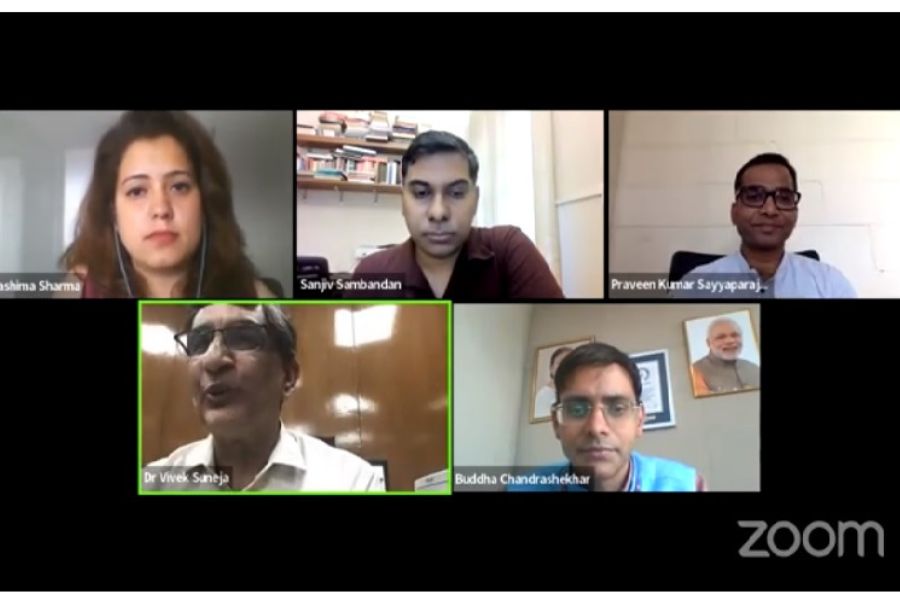Webinar on “Making India a Global Hub for Higher Education”
India Business and Trade, the intellectual platform of the Trade Promotion Council of India, hosted a webinar titled “Making India a Global Hub for Higher Education” on June 22nd, 2023. Distinguished academicians and esteemed members from India’s higher education ecosystem formed a panel and engaged in a comprehensive discussion on the key factors that contribute to, as well as hinder, the development of India’s education system.
India Business and Trade, the thought leadership platform of Trade Promotion Council of India, organized a webinar on “Making India a Global Hub for Higher Education” on June 22nd, 2023. During the webinar, the participants discussed India’s status as a prominent destination for higher education and highlighted the accomplishments of government initiatives such as the “Study In India” program.
The panel comprised of esteemed academicians and members of the higher education ecosystem:
• Dr Vivek Suneja, Head & Dean and Professor, North Campus, University of Delhi
• Buddha Chandrashekhar, Chief Coordinating Officer, All India Council for Technical Education
• Sanjiv Sambandan, Professor, Indian Institute of Science
• Praveen Kumar S, Deputy CEO and Head, SVYM and Member, NEP 2020 Implementation Task Force
The panelists addressed several factors that have hindered the growth of the Indian education system and explored the reasons behind the exclusion of Indian universities from prestigious global rankings such as the Times Higher Education World University Rankings 2023.
Some of the key factors that have been cited for the poor performance of Indian universities are:
1. Only a few Indian universities come close to receiving the level of government funding provided to universities worldwide.
2. The lack of funding is said to reflect in quality of infrastructure and teaching staff in a number of higher education institutions, barring the notable exceptions.
3. Another field in which where we can work aggressively is improving the International Research Network so that research is popularised. Moreover, industry-academia interface in research needs to be strengthened significantly.
4. Course curriculum has been cited as non-adherent to sector requirements.
5. Indian universities, accustomed to adhering to UGC and AICTE guidelines, find it challenging to meet parameters that evaluate global reputation like global diversity, international faculty, international students, research intensity, and the involvement of professors in research, among other factors.
The panel discussion primarily focused on government funding for Research and Development (R&D) and Innovation, along with exploring strategies for Indian universities to promote these endeavors on an international scale. The participants underscored the significance of practical application and skill development right from the initial stages of education.
Additionally, the panelists actively deliberated the challenges faced in areas such as infrastructure and curriculum, and proposed potential solutions to overcome these obstacles in order to establish a global presence for Indian universities.
